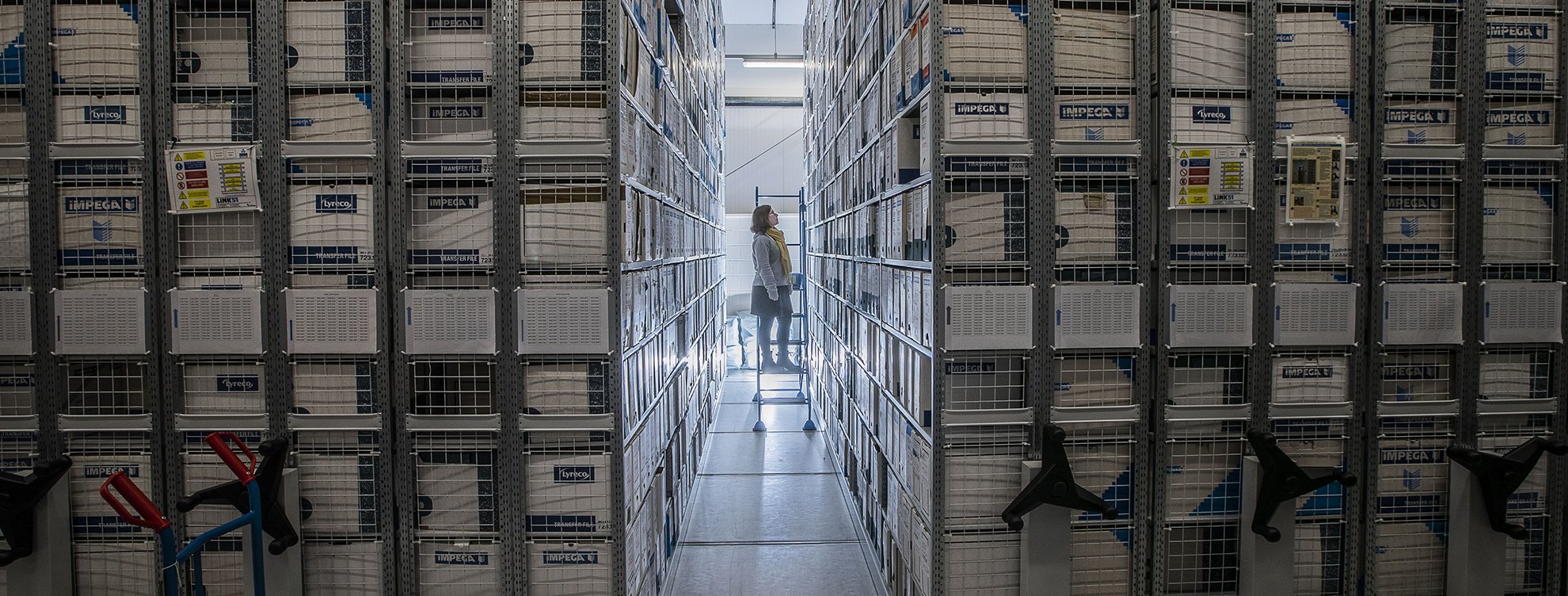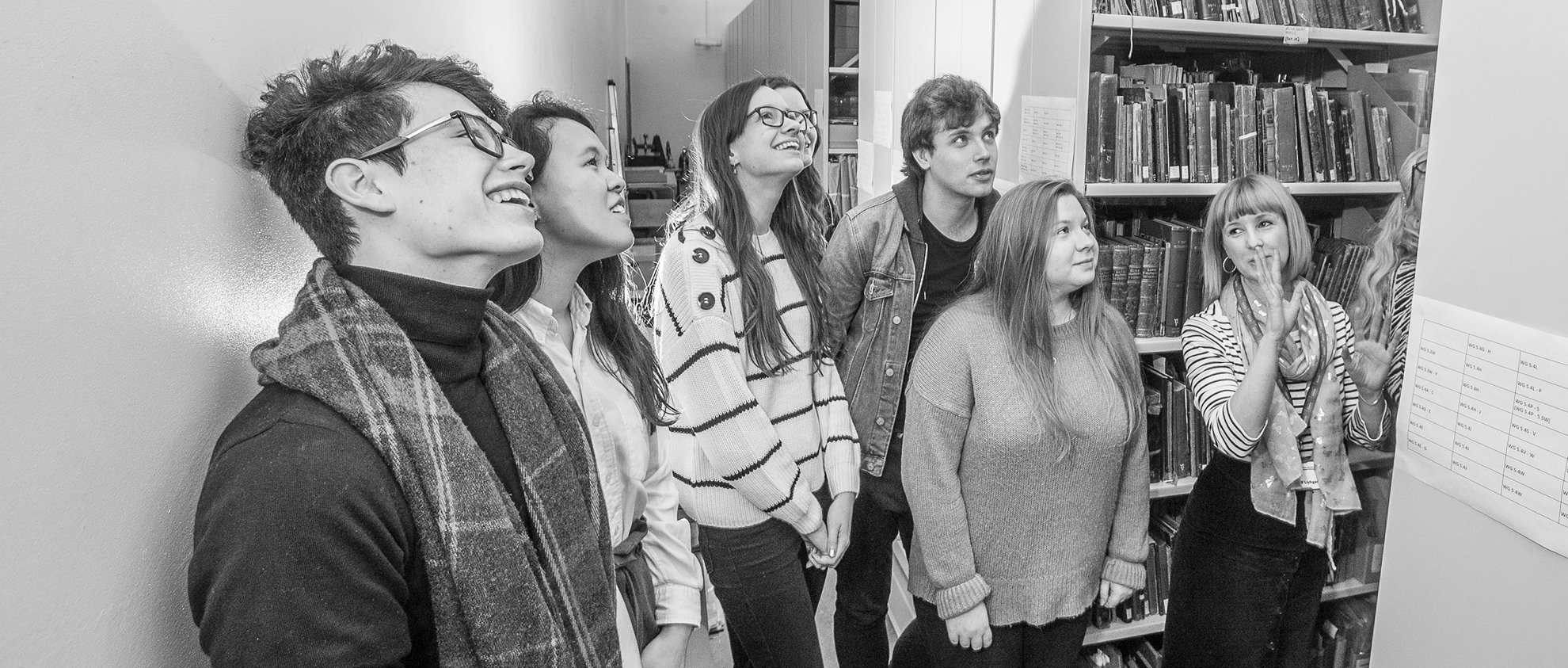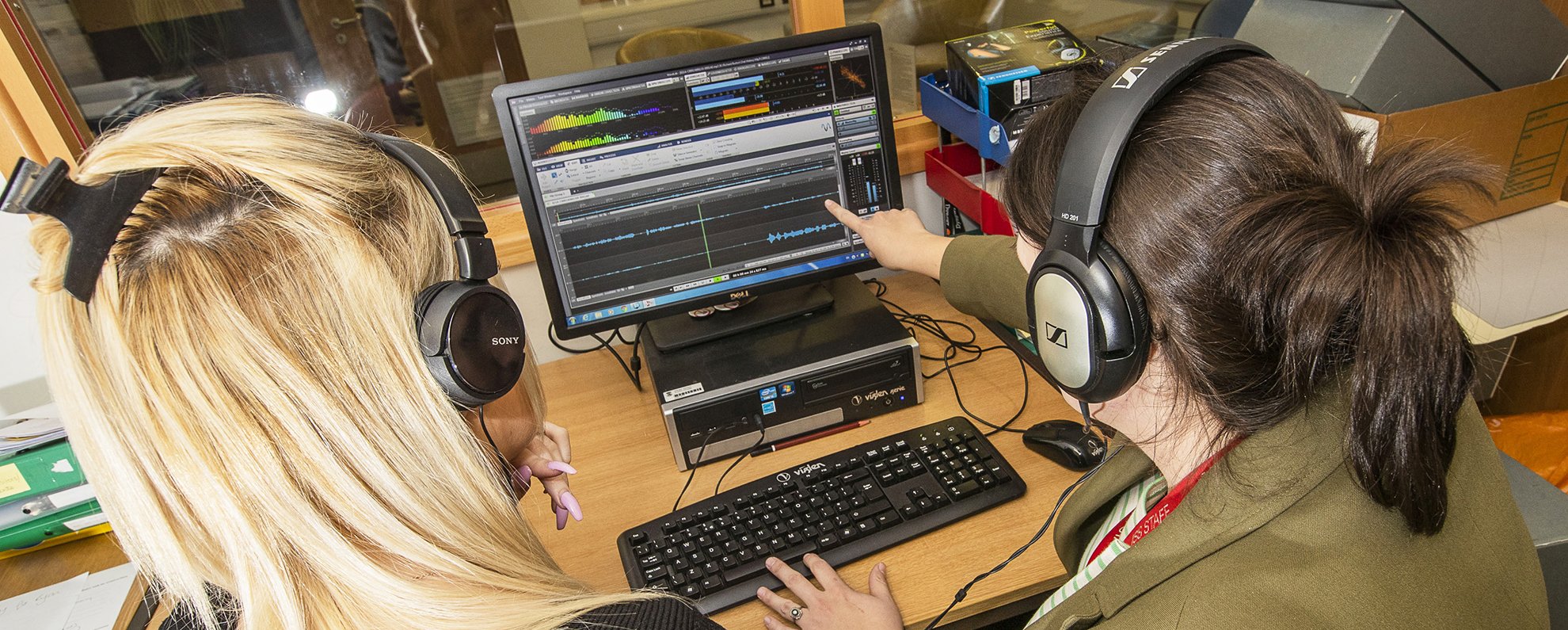
A Career in Record-Keeping
If you are interested in starting a career in record-keeping, whether it is in archives, records management or archive conservation, then read on!
Careers in archives, records management and archive conservation
The record-keeping sector offers fascinating and rewarding career opportunities. It covers three disciplines, Archives, Records Management and Archive Conservation. Each attracts people from varied backgrounds with unique skills. Whether you’re thinking of studying an ARA-accredited qualification, applying for an apprenticeship, or forging your own route into the profession, you can find more information here.
Archivists safeguard our national, collective history, preserving crucial events and stories for all. They manage and maintain documents and other materials that have important historical and cultural significance for individuals, organisations and nations. As an archivist, a large part of your work is related to preserving information and making it accessible to all users.
Archives include valuable historical books, papers, maps, photographs, prints, films, tapes, videos and digital records. Researchers, academics, the general public and work colleagues, are all users of archives and we need to improve access to collections in person and online.
There are a range of roles available, with titles that include Archivist, Digital Archivist, Collections Assistant, Project Archivist, Information and Culture Officer, Records and Archive Manager, Head of Cultural Services, Archive Assistant, Digital Preservation Officer, Archive Engagement and Volunteering Officer. Opportunities are available in the public, private and charitable/not for profile sectors.
Archive conservators work with archivists and other heritage professions and organisations. They are responsible for the preservation and conservation of historic documents. These include a range of materials and formats such as manuscript documents and books, parchment deeds and maps, seals as well as modern media including photographic material.
Archive conservators possess a high level of manual dexterity, combined with aesthetic flair, patience and sympathy for the materials they are working with. Knowledge of paper and parchment history and chemical processes is also required.
Many conservators work in local authority archive services, libraries, university archives, local history centres, museums and religious organisations.
There are a range of roles available, with titles that include Conservator, Conservation Manager, Conservation Assistant, Preventative Conservator
Records managers are responsible for the effective and appropriate management of an organisation's records in all forms, from their creation to their eventual disposal. As a professional activity it is also related to knowledge and information management, as well as information compliance (data protection and freedom of information).
As a records manager you provide access to accurate records for a range of operational and strategic purposes, ensuring that legal obligations for the creation and retention of records are met. This includes controlling the number of records created and stored, and identifying which records are to be preserved for historical and research purposes and which should be destroyed.
There are a range of roles available, with titles that include Records Assistant, Records Manager, Information Manager, Digital Records Manager, Knowledge and Information Manager, Data Protection Officer, Corporate Records Officer, Information Rights Officer, Records Appraisal Specialist, Records Manager and Archivist, Senior Information Governance Officer.
ARA membership is your partner for a rewarding career. We provide services to support members throughout their careers, including professional development and recognition for their career achievements.d.

Work experience
Getting some real-life work experience is often the best way to understand what it is like to work in many professions. It will help you decide whether record-keeping is the career for you and provide valuable experience that employers look for. A good place to start is The UK National Archives’ online archive directory. Also have a look online for local heritage organisations, museums, records offices and private sector businesses. Send them an email with a CV to introduce yourself and find out what opportunities they have. Be sure to follow up with a phone call a few days later. It’s never too early to start making connections in the profession. You can also find out more about volunteering in the sector here.

What jobs are available?
Even if you’re a long way from entering the world of work, it’s a good way to see the types of roles on offer and get a better idea of what you might want to do in the future. The following are useful sources of job adverts:
Have a look at the job descriptions and person specifications of roles you are interested in, noting what employers consider to be ‘essential’ or ‘desirable’, as this will help you think about the knowledge and skills you might need to develop. You’ll also get a good understanding of the salary levels on offer.

Apprenticeships
An apprenticeship is a real job with training and a first step to a career in archives and records management. The Level 3 Libraries, Information and Archive Services (LIAS) Assistants apprenticeship is currently the only available apprenticeship open to new applicants and offers a variety of career paths, including archive services.
For more information on the apprenticeship opportunities please visit Westminster Adult Education Service. You can also learn more form the UK National Archives website and the Institute for Apprenticeships website.
The Level 7 Apprenticeship in Archives and Records Management lost funding from the UK Government for cohorts starting in 2026 however existing cohorts are funded to continue until they complete their apprenticeships.

Study at University
ARA accredits university programmes to ensure they meet the highest professional and academic standards in archives, records management, and conservation. ARA-accreditation is a mark of quality that benefits students, universities, and the profession as a whole.
ARA-accredited programmes can be studied at any stage of your career, whether following a degree or mid-career study. Full-time, part-time and distance learning options are available. Once graduated, you can gain experience and progress towards Registered Membership of the ARA.
You can make contact with the universities below to find a course that suits your interests.
Prior work experience is helpful as it will complement your academic study, but universities are experienced in supporting students from a wide range of backgrounds.
Through accreditation, ARA plays a vital role in shaping the future of the profession, ensuring that education remains relevant, respected, and impactful.

The ARA’s Archive Conservation Training Scheme
This is the route to a career as an Archive Conservator and the only on-the-job training programme of its kind in the UK & Ireland. It is a highly vocational course with theoretical input and provides primary training in the fundamental aspects of archive conservation, essential for a conservator to operate in a professional capacity within an archive setting.
For more information please visit our Archives and Records Association Archives Conservation Training Scheme webpage.

